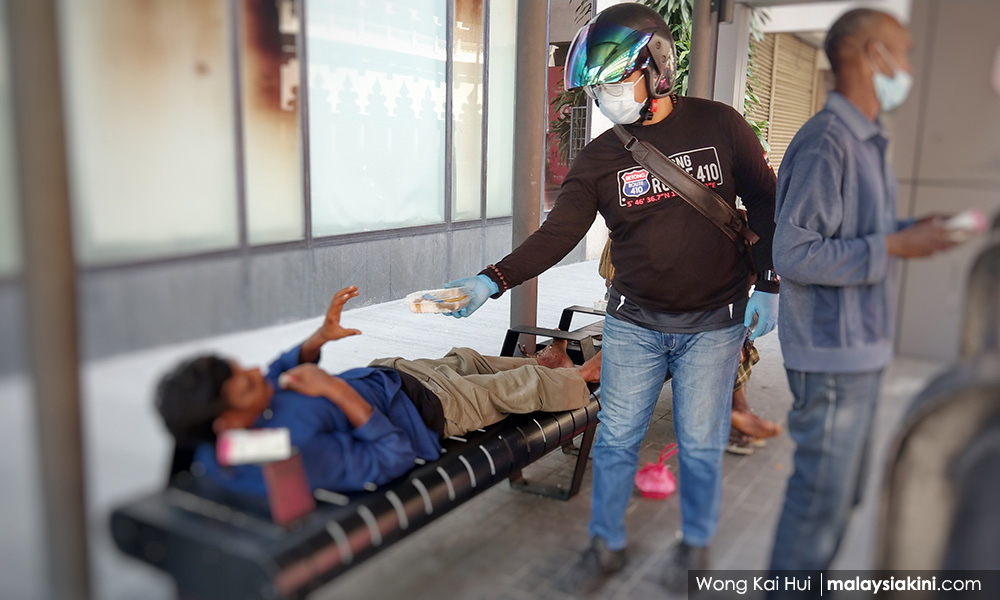Today marks a full year of Muhyiddin Yassin as the eighth prime minister. We will hear varied views on his tenure in office – ranging from saccharine accolades in government-linked media to harsh censure in more independent outfits.
Assessments will fall into the different polarised lenses where those who accept his government legitimised to ethnic appeals sharply differ from those who view his capitalising on defection as a means to secure power and use of patronage and exclusion to maintain power as illegitimate. The twain perspectives of the ‘best’ and ‘worst’ government will coexist.
In the attention on one individual and his merry men, the larger picture can be forgotten. This articles not looking at Muhyiddin’s leadership – his kampung grandfather ‘Abah’ appeal, his ‘less is more’ presence, his unwillingness to redress the excesses, poor/uneven performance and double standards of his appointees and his administration’s embodiment of power as an entitlement couched as a protector.
Instead, it asks a more important question: where is Malaysia one year later? I argue that Malaysia has lost an opportunity to use this year of crises for needed structural and policy reforms, and failing to embrace this window for change has set the country back.
Stasis crisis management
Covid-19, one of the worst economic contractions in history and political instability, has been a trifecta for stasis. After a strong start for Muhyiddin’s government, with promises to address the pandemic and focus on the economy, the forward trajectory stalled and, in many ways, actively reversed.
Of the three crises, Malaysia gets comparative good marks globally in the first area – pandemic management. Despite reaching over 300,000 reported cases (100,000 of these in the last month) – the deaths (although preventable and tragic) have been minimised, with only 1,130 reported so far.

A closer look suggests that the opportunity to revamp healthcare and to broaden the approach toward pandemics has been wasted.
The additional resources for healthcare have not adequately been spent on strengthening foundational health care systems – with too many doctors (needed human capital) on tenuous contracts and spending toward addressing the inequalities in health care infrastructure in areas such as Sabah and Sarawak going by the wayside.
Many of the business deals in healthcare (and beyond) that are being sealed lack coherence and adequate oversight.
As the Ministry of Health has ploughed ahead in their formula of lockdowns, low testing and a minimum resource targeted Covid-19 approach, there has been a narrowing rather than a needed deepening of public health care management. That the government had to rely on a ministry outside of health for vaccine procurement and planning speaks volumes.
Public health professionals have repeatedly called for new government/society-wide policy approaches to the pandemic (reform of detention centres, treatment of foreign workers, wider testing etc) and caution an overreliance on vaccines as a ‘solution’.
Instead, there is overconfidence that they (the government) are doing the right thing without maximising the opportunity to strengthen a sector that Covid-19 has shown is vulnerable.
Economic shortfalls
In the economy, the problems are arguably even more serious. Analysts have long argued that Malaysia remains locked in a ‘middle income’ trap.
In recent years, there have been modest reforms in the government-linked companies and greater liberalisation of many sectors of the economy with modest expansions of the social safety net.
The impact of Najib’s 1MDB scandal was not just about the syphoning of money and the abuse of power involved but it has shown how the scandal has undercut the country’s finances.
This year, the shortfall of options to address the socio-economic effects of Covid-19 has been keenly felt with comparatively modest measures when compared to regional neighbours to stimulate the economy and support those hardest hit from the economy’s contraction.
The social safety net measures have been renamed, but the model of throwing inadequate sums of money to address needs for political gains has continued. Those unemployed – in record numbers – have been largely left to fend for themselves.
The nexus between business and politics has returned to practices of the past with loyalty to political patrons and focus on personal paymasters the norm. The layer of justification of these measures as tied to ethnic empowerment has fallen short when compared to earlier similar policy initiatives.
The inequalities in Malaysian society have widened further – life experiences contrasting sharply from reports of ministers who have found time to vacation abroad and engage in modelling.

Comparative positioning
Many see the crises of the last year as being a political opportunity for those in power, one tied to economic opportunities for themselves as well. There has been a preoccupation with positions in power and, for some, financial positions. This comes at a cost for the nation as a whole.
As Singapore has shown itself ahead in managing the vaccine, and other regional economies such as Vietnam and Indonesia have outperformed Malaysia in terms of foreign investment and growth, Malaysia’s comparative advantage is also being challenged.
History has shown that crises leave scars – they take years to recover, and some countries never fully do. Malaysia still wrestles with both the crises of the riots of 1969 and the Asian Financial Crisis/reformasi crisis of 1997-1999. The wounds of Covid-19 remain open as the crises are ongoing, but the toil is ever-present.
This year of crises is mistakenly touted as resolving itself once things get back to ‘normal’. Economists regularly speak of returns to positive growth, for example.
What is not fully appreciated in this ‘new normal’ is how much has shifted. There will be no going back, no romantic reset. The traction for reform has eroded and obstacles to change are that much higher.
Moving forward will be that much more difficult with greater cynicism and frustrations. Redressing the more deeply entrenched inequalities and policy gaps will now be even harder than before.
There is a pressing need to step back from the personal positioning and interests and learn the lessons from the last year; to see, outline and adopt a trajectory of a better future for Malaysia.
The country and its people do not have another year to lose.
BRIDGET WELSH is a senior research associate at the Hu Fu Centre for East Asia Democratic Studies and a senior associate fellow of The Habibie Centre. She currently is an honorary research associate of the University of Nottingham, Malaysia's Asia Research Institute (Unari) based in Kuala Lumpur. She tweets at @dririshsea. - FMT
The views expressed here are those of the author/contributor and do not necessarily represent the views of MMKtT.




No comments:
Post a Comment
Note: Only a member of this blog may post a comment.